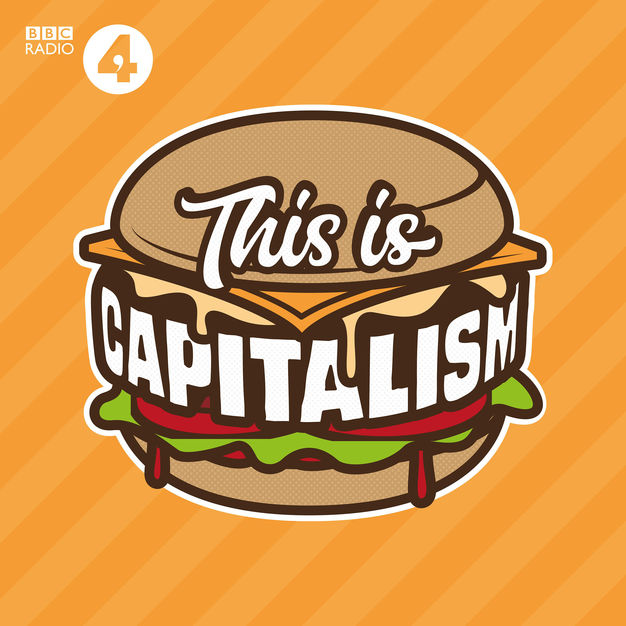
This is Capitalism
This is a collection of programmes from BBC Radio 4 on capitalism - the hidden economic wiring which puts money and markets at the centre of our lives.
- 15 minutes 21 seconds2009: Our House - Episode 5
How might a young couple, unable to buy their first home today, have fared in past decades? Tacita and Charlie are in their mid twenties. They live near Brighton on the south coast and are desperate to move in together. But buying somewhere in this part of the country is out of their reach. They believe earlier generations had it easier than they do. In the final programme Tacita and Charlie travel back to 2009. The global financial crisis is biting hard, mortgage lending is being squeezed and workers are facing a pay freeze. So, is this the worst period so far for a young couple trying to get on the housing ladder? And how does it compare to today? The experts who guide our couple through 2009 are economist Jonathan Cribb from the Institute for Fiscal Studies, Professor Sharon Collard from the University of Bristol and Professor Claire Langhamer from the University of Sussex.
Producers: Rosamund Jones and Paul Kerley
9 September 2019, 10:48 am - 15 minutes 3 seconds1997: Our House - Episode 4
How might a young couple, unable to buy their first home today, have fared in previous decades? Tacita and Charlie are in their mid twenties. They live near Brighton on the south coast and are desperate to move in together. But buying somewhere in that part of the country is out of their reach. They believe earlier generations had it easier than they do. In part four of five programmes Tacita and Charlie travel back to 1997; the Labour party has just won power in a landslide victory, the Conservatives claim to have left the economy in better shape than ever before. Just a few years earlier a property crash had left hundreds of thousands of people in negative equity or suffering repossession. So, what sort of difficulties might a young couple, trying to get on the property ladder back then, have faced? And how might they compare to the situation Tacita and Charlie are in today? The experts who guide our couple through 1997 are economist Jonathan Cribb from the Institute for Fiscal Studies, Professor Sharon Collard from the University of Bristol and Professor Claire Langhamer from the University of Sussex.
Producers: Paul Kerley and Rosamund Jones
9 September 2019, 9:15 am - 15 minutes 13 seconds1988: Our House - Episode 3
How might a young couple, unable to buy their first home today, have fared in past decades? Tacita and Charlie are in their mid twenties. They live near Brighton on the south coast and are desperate to move in together. But buying somewhere in that part of the country is out of their reach. They believe earlier generations had it easier than they do. In the third of five programmes, Tacita and Charlie travel back to 1988. Unemployment was high, the result of the deep recession that had hit manufacturing businesses so hard, but credit was easier to come by than ever before; deregulation was full steam ahead. And house prices, in London and the South East, were climbing fast. Would a young couple, back then, have faced the same sort of difficulties Tacita and Charlie do today? The experts who guide our couple through 1988 are economist Jonathan Cribb from the Institute for Fiscal Studies, Professor Sharon Collard from the University of Bristol and Professor Claire Langhamer from the University of Sussex.
Producers: Paul Kerley and Rosamund Jones
6 September 2019, 3:21 pm - 15 minutes 13 seconds1979: Our House - Episode 2
How might a young couple, unable to buy their first home today, have fared in previous decades? Tacita and Charlie are in their mid twenties. They live near Brighton on the south coast and are desperate to move in together. But buying somewhere in that part of the country is out of their reach. They believe that earlier generations had it easier than they do. In the second of five programmes, Tacita and Charlie travel back to 1979. Inflation rates were soaring and mortgage payments were likely to take up more of your income than ever before. Industrial unrest was commonplace, but the gap between top and low earners much less than in other decades. So how much difficulty would a young couple, trying to get on the housing ladder back then, have faced? The experts who guide our couple through 1979 are economist Jonathan Cribb from the Institute for Fiscal Studies, Professor Sharon Collard from the University of Bristol and Professor Claire Langhamer from the University of Sussex.
Producers: Rosamund Jones and Paul Kerley
6 September 2019, 2:35 pm - 15 minutes 18 seconds1968: Our House - Episode 1
How might a young couple, unable to buy their first home today, have fared in past decades? Tacita and Charlie are in their mid twenties. They live near Brighton on the south coast and are desperate to move in together. But buying somewhere in that part of the country is out of their reach. They believe earlier generations had it easier than they do. In the first of five programmes, Tacita and Charlie travel back to 1968. This was when salaries - in real terms - were considerably lower than they are now, mortgages were hard to come by and would most likely be calculated only on the male earner's wages. It was also the year when house building hit its peak. So, is their hunch right - would they have had an easier time back then? The experts who guide our couple through 1968 are economist Jonathan Cribb from the Institute for Fiscal Studies, Professor Sharon Collard from the University of Bristol and Professor Claire Langhamer from the University of Sussex.
Producers: Rosamund Jones and Paul Kerley
2 September 2019, 1:46 pm - 28 minutes 2 secondsJulie and Paul: The Money Clinic - Episode 4
Money is one of the top three strains on relationships and it’s a common cause of rift between family and friends too.
You might be cautious and risk averse and hate to see your partner frittering their money away on new clothes and nights out; while they might think you should stop being so miserly with your cash and splash out once in a while.
In the Money Box Summer series Ruth Alexander introduces ‘The Money Clinic’. We eavesdrop on the conversations of three couples and a mother and son talking honestly about their finances with a relationship counsellor. We learn who they are, about their relationship with the other person, and what financial issues are coming between them. We hear practical tips on how each couple can better to manage their cash, and also how to manage the emotional side of money. We learn that individual attitudes to money are formed in early life, and how arguments about money are often about so much more than just money.
In this programme we meet Paul who wants to retire early, but his wife Julie says he can’t afford to. Can they come up with a plan for this next stage of life that they will both agree to?
Producer Smita Patel Editor Emma Rippon
2 September 2019, 9:00 am - 28 minutes 2 secondsFiona and James: The Money Clinic - Episode 2
Money is one of the top three strains on relationships and it’s a common cause of rift between family and friends too. You might be cautious and risk averse and hate to see your partner frittering their money away on new clothes and nights out; while they might think you should stop being so miserly with your cash and splash out once in a while.
In the Money Box Summer series Ruth Alexander introduces ‘The Money Clinic’. We eavesdrop on the conversations of three couples and a mother and son talking honestly about their finances with a relationship counsellor. We learn who they are, about their relationship with the other person, and what financial issues are coming between them. We hear practical tips on how each couple can better to manage their cash, and also how to manage the emotional side of money. We learn that individual attitudes to money are formed in early life, and how arguments about money are often about so much more than just money.
In this programme we meet Fiona, who is frustrated by her son James’ feckless attitude towards money. He’s 20-years-old but she feels like he sometimes acts like a two-year-old. How can she get him to change his ways?
Producer Smita Patel Editor Emma Rippon
2 September 2019, 8:07 am - 27 minutes 53 secondsFay and Ben: The Money Clinic - Episode 3
Money is one of the top three strains on relationships and it’s a common cause of rift between family and friends too. You might be cautious and risk averse and hate to see your partner frittering their money away on new clothes and nights out; while they might think you should stop being so miserly with your cash and splash out once in a while.
In the Money Box Summer series Ruth Alexander introduces ‘The Money Clinic’. We eavesdrop on the conversations of three couples and a mother and son talking honestly about their finances with a relationship counsellor. We learn who they are, about their relationship with the other person, and what financial issues are coming between them. We hear practical tips on how each couple can better to manage their cash, and also how to manage the emotional side of money. We learn that individual attitudes to money are formed in early life, and how arguments about money are often about so much more than just money.
In this programme, 20-somethings, Ben and Fay, have just moved in together. It’s an exciting time, but their arguments about money are getting them down. Can they learn to see eye-to-eye?
Producer Smita Patel Editor Emma Rippon
17 August 2019, 11:05 am - 27 minutes 48 secondsPoppy and Cliff: The Money Clinic - Episode 1
Money is one of the top three strains on relationships and it’s a common cause of rift between family and friends too.
You might be cautious and risk averse and hate to see your partner frittering their money away on new clothes and nights out; while they might think you should stop being so miserly with your cash and splash out once in a while.
In the Money Box summer series Ruth Alexander introduces ‘The Money Clinic’. We eavesdrop on the conversations of three couples and a mother and son talking honestly about their finances with a relationship counsellor. We learn who they are, about their relationship with the other person, and what financial issues are coming between them. We hear practical tips on how each couple can better to manage their cash, and also how to manage the emotional side of money. We learn that individual attitudes to money are formed in early life, and how arguments about money are often about so much more than just money.
In this programme we meet Cliff and Poppy who own a cafe together but their financial mind-sets are miles apart. He’s a ‘maverick’ with money, while she’s intensely frugal. Can they find a middle ground?
Producer Smita Patel Editor Emma Rippon
14 August 2019, 9:01 am - 56 minutes 21 secondsNanoseconds and Megabucks
David Grossman with more stories which help explain the world of contemporary capitalism. He enters the strange world of high speed financial trading, where a millionth of a second can make the difference between fortune and failure. He learns about the increasing role of the financial sector, asking about the risks of our reliance on debt. Plus how South America tried to introduce its own brand of socialism and the growing influence and appeal of state-directed capitalism in places like China. Can free-market economies like Britain compete fairly?
Producers: Diane Richardson and Matthew Chapman
9 July 2019, 3:09 pm - 56 minutes 50 secondsThe Bailout
A dramatic blow by blow account from then Prime Minister Gordon Brown of the bank bailout. Along with Chancellor Alistair Darling at the Treasury, Governor Mervyn King at the Bank of England, and BBC Business Editor Robert Peston, witness the race against time to deliver a bold plan to stabilise the financial system before the banks go bust.
Taking us inside incredible scenes: in the Oval Office where Gordon receives a fax saying Bradford and Bingley has gone bust whilst trying to persuade President Bush to recapitalise; bank Chief Executives being bundled in the back door of the Treasury for secret meetings that are immediately leaked; Alistair trying to keep a straight face at a boring Finance Ministers meeting in Luxembourg whilst RBS goes belly up; heretical invitations from President Sarkozy for Gordon to attend Euro Group meeting at the Elysee Palace when Britain isn’t even in the Eurozone; phone calls from bankers saying they just need a bit of spare cash to tide them over, and their inevitable downfall.
This is the story of what happened as the drama unfolded, without analysis, interpretation, or hindsight; because at the time nobody knew whether the biggest injection of cash into banks in British history would be enough to stave off Armageddon.
8 October 2018, 4:37 pm - More Episodes? Get the App
Your feedback is valuable to us. Should you encounter any bugs, glitches, lack of functionality or other problems, please email us on [email protected] or join Moon.FM Telegram Group where you can talk directly to the dev team who are happy to answer any queries.
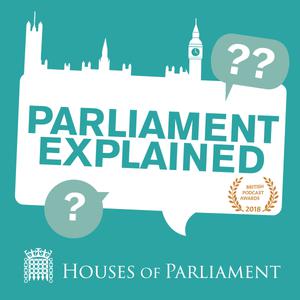 Parliament Explained
Parliament Explained
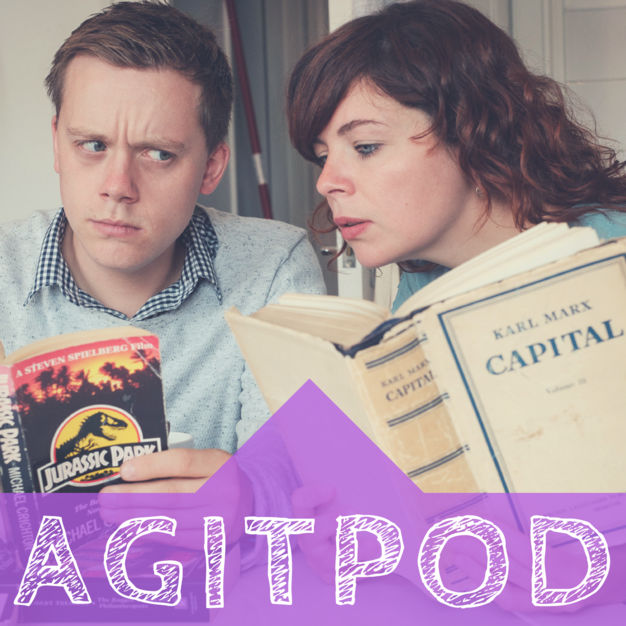 Agitpod with Owen Jones & Ellie Mae O'Hagan
Agitpod with Owen Jones & Ellie Mae O'Hagan
 Deep Dive
Deep Dive
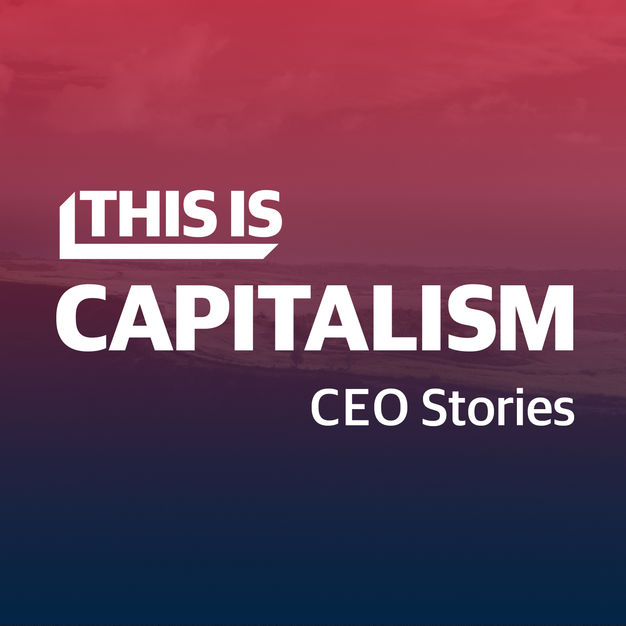 This is Capitalism: CEO Stories
This is Capitalism: CEO Stories
 FT Big Picture
FT Big Picture
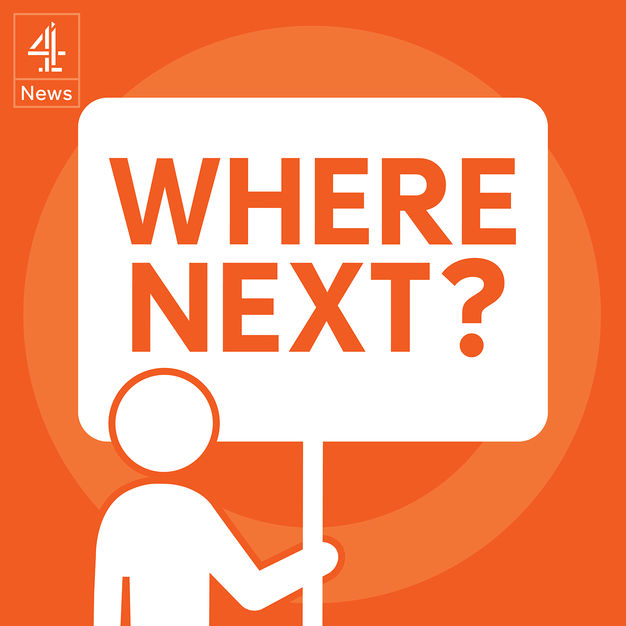 Politics: Where Next?
Politics: Where Next?